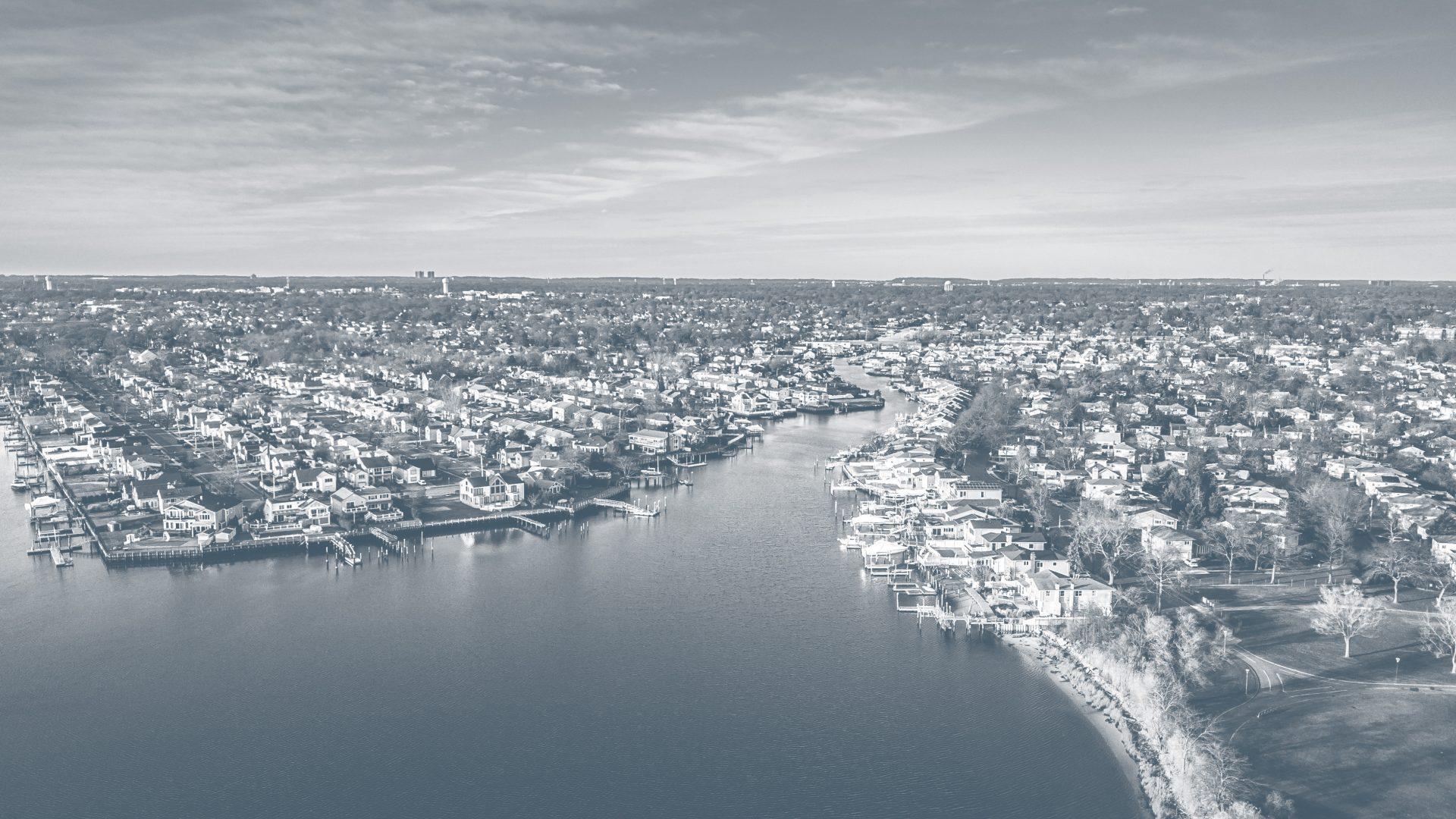
Permit Acquisition
Permit acquisition is a crucial step in the construction, renovation, or alteration of a building, ensuring that the project adheres to local building codes, zoning regulations, and other pertinent laws. This administrative process involves submitting detailed project plans, specifications, and other required documents to local government or regulatory bodies for review and approval. Navigating through the permit acquisition process requires a thorough understanding of local regulations, meticulous preparation of documentation, and often, a degree of patience and flexibility.
The initial phase of permit acquisition involves understanding the specific permits required for the project. Different types of projects, such as new constructions, renovations, electrical work, plumbing installations, or structural alterations, may require distinct permits. Familiarizing oneself with local building codes, zoning laws, and permit requirements is pivotal to ensure that the project is compliant and avoids any legal complications or delays.
Preparation and submission of detailed project documentation is a core component of permit acquisition. This typically involves providing comprehensive plans of the proposed project, which may include architectural drawings, structural plans, and specifications related to electrical, plumbing, and mechanical systems. These documents should adhere to local building codes and regulations and may need to be prepared or approved by a licensed professional, such as an architect or engineer, depending on local requirements.
The review process involves a thorough examination of the submitted documents by the relevant regulatory body to ensure that the project adheres to all applicable laws and standards. This may involve scrutinizing the structural integrity of the design, ensuring compliance with zoning laws, and verifying that all aspects of the project align with safety and environmental standards. Depending on the complexity of the project and the efficiency of the local authority, the review process can vary in duration.
In some instances, modifications to the initial plans may be required to achieve compliance with local regulations. This may involve altering design elements, adjusting project specifications, or providing additional documentation to satisfy regulatory requirements. Open communication and collaboration with the reviewing body can facilitate a smoother adjustment process and expedite permit approval.
Upon approval of the permits, the project must adhere to the approved plans and specifications throughout the construction process. Inspections may be conducted by local authorities at various stages of the project to ensure ongoing compliance with the approved plans and relevant regulations. Ensuring that the project remains compliant with the approved permits throughout its duration is crucial to avoid fines, delays, or potential legal issues.
Permit Acquisition Services & Pricing
| Service | Description | Price Range |
|---|---|---|
| Building Permit Acquisition | Obtaining a building permit, which allows for the construction or alteration of a structure. | $400 – $4,000 |
| Electrical Permit Acquisition | Obtaining an electrical permit, which allows for the installation or alteration of electrical systems. | $50 – $500 |
| Plumbing Permit Acquisition | Obtaining a plumbing permit, which allows for the installation or alteration of plumbing systems. | $50 – $500 |
| Mechanical Permit Acquisition | Obtaining a mechanical permit, which allows for the installation or alteration of mechanical systems like HVAC. | $75 – $500 |
| Demolition Permit Acquisition | Obtaining a demolition permit, which allows for the lawful demolition of a structure or part of it. | $200 – $2,000 |
| Roofing Permit Acquisition | Obtaining a roofing permit, which allows for the installation or replacement of roofing. | $150 – $400 |
| Deck Permit Acquisition | Obtaining a permit for constructing or altering a deck on a property. | $100 – $500 |
| Fence Permit Acquisition | Obtaining a permit for installing or replacing a fence on a property. | $50 – $200 |
| Sewer/Septic Permit Acquisition | Obtaining a permit for installing, repairing, or replacing a sewer or septic system. | $250 – $1,500 |
| Driveway Permit Acquisition | Obtaining a permit for creating or altering a driveway. | $50 – $200 |
| Landscaping Permit Acquisition | Obtaining a permit for significant landscaping work, especially if it involves structural installations. | $50 – $300 |
| Fire System Permit Acquisition | Obtaining a permit for installing or altering fire suppression systems. | $100 – $1,000 |
| Signage Permit Acquisition | Obtaining a permit for installing signage on a property. | $50 – $500 |
| Zoning Compliance Permit | Ensuring that a project complies with local zoning regulations and obtaining necessary permits. | $100 – $2,000 |
| Historical Preservation Permit | Obtaining a permit for altering a historical building, ensuring compliance with preservation guidelines. | $200 – $1,500 |
| Environmental Compliance Permit | Ensuring that a project complies with environmental regulations and obtaining necessary permits. | $200 – $3,000 |
| Permit Expediting Services | Hiring a professional to facilitate the quick approval and issuance of required permits. | $200 – $2,000 |
These prices are general estimates and actual costs may vary based on location, specific project details, and local government fee structures.
Getting Through The Permit Application Process
Navigating through the permit application process for construction or renovation projects can be a meticulous and multifaceted endeavor, requiring a thorough understanding of local regulations, detailed preparation of documentation, and strategic communication with regulatory authorities. Initially, it’s imperative to immerse oneself in the local regulatory landscape, comprehending the building codes, zoning laws, and specific permit requirements pertinent to the project. Engaging in consultations with local authorities or utilizing permit service companies can provide valuable insights and guidance through the regulatory maze.
The preparation and submission of comprehensive documentation, including detailed architectural and structural plans, along with specifications for electrical, plumbing, and mechanical systems, form the cornerstone of the application process. Ensuring that these documents are prepared or vetted by licensed professionals, such as architects or engineers, and adhere to local codes and standards, is pivotal to facilitating a smoother review process. The application should be accompanied by accurately completed forms and the payment of any applicable fees to avoid unnecessary delays or rejections.
As the application undergoes review, maintaining open and proactive communication with the reviewing body enables you to stay abreast of the application status and address any issues or concerns that may arise promptly. Patience is often requisite, as the review process can be time-intensive, particularly for complex projects. In instances where revisions are necessitated, seeking clear clarification on the required changes and promptly adjusting and resubmitting plans demonstrates compliance and facilitates progression towards approval.
Once the permit is approved, strict adherence to the approved plans and specifications throughout the construction process is paramount. Scheduling and facilitating inspections at various project stages, as mandated by local authorities, ensures ongoing compliance and addresses any potential issues proactively. Upon project completion, a final inspection and securing approval solidify the project’s adherence to regulatory standards and approved plans.
The permit application process, while potentially intricate and challenging, serves as a vital conduit to ensuring that construction and renovation projects are executed in compliance with local regulations, safeguarding the safety, functionality, and legality of the structure. Through strategic preparation, proactive communication, and meticulous adherence to approved plans and local codes, the permit acquisition journey can be navigated successfully, paving the way for projects to materialize from conception to fruition within the bounds of regulatory compliance.
WHY GJANA?
- Experienced Team: Our team comprises professionals with extensive experience in outdoor extension design and construction.
- Personalized Service: We offer personalized service, ensuring your outdoor extension reflects your style, needs, and preferences.
- Transparent Pricing: After a detailed assessment, we provide clear and upfront pricing with no hidden costs.
- Customer Satisfaction: Your satisfaction and the success of your outdoor extension project are our top priorities. We aim to deliver exceptional service and results with every project.

MANHATTAN
LONG ISLAND
WESTCHESTER COUNTY
FAIRFIELD COUNTY
Outdoor Extension
An outdoor extension can serve as a splendid addition to a home, providing an extra space where memories are created, and moments are cherished. Whether it’s a deck, a patio, a pergola, or an outdoor kitchen, extending the living space outdoors not only enhances the functionality of a home but also offers a refreshing environment to relax, entertain, and enjoy the natural surroundings. It acts as a bridge, seamlessly blending the indoors with the outdoors, and providing a platform where both can be enjoyed simultaneously.
The planning phase of an outdoor extension is pivotal and encompasses various aspects, including design, material selection, and legal compliance. The design should be in harmony with the existing structure, ensuring that the extension feels like a natural continuation of the home rather than an afterthought. Material selection is also crucial, as the materials used should be durable and able to withstand the elements, ensuring longevity and maintaining aesthetics. Furthermore, ensuring that the extension complies with local zoning laws, building codes, and obtaining necessary permits is paramount to avoid legal complications.
Creating an outdoor extension also involves considering the specific functionalities it will serve. If it’s a space for entertaining, considerations for seating areas, a cooking space, and possibly even an outdoor bar may be pertinent. If it’s a space for relaxation, then the focus might shift towards comfortable lounging options, shade provisions, and perhaps incorporating elements like a fire pit or a water feature for an added sense of tranquility. The functionality of the space should be at the forefront of design and planning to ensure it meets the homeowner’s needs and expectations.
Moreover, considering the landscaping and surrounding natural elements is vital in an outdoor extension project. Integrating the extension with existing trees, shrubs, and other natural features can create a harmonious blend between the built and natural environment. Additionally, considering aspects like privacy, either through strategic planting or the use of privacy screens, can create a secluded oasis that provides an escape from the hustle and bustle of daily life.



Outdoor Extension Services & Pricing
Outdoor extensions can encompass a variety of projects, such as decks, patios, pergolas, or outdoor kitchens. Below is a general table outlining potential services, descriptions, and estimated pricing ranges for outdoor extensions. Note that actual costs can vary widely based on specific project requirements, materials, local labor rates, and other factors.
| Service | Description | Estimated Pricing |
|---|---|---|
| Design and Planning | Creating designs and plans for the outdoor extension, ensuring compliance with local building codes. | $1,500 – $5,000 |
| Site Preparation | Clearing the area, leveling the ground, and preparing the site for construction. | $1,000 – $3,000 |
| Foundation Work | Laying the foundation, which may involve pouring concrete or installing piers. | $2,500 – $7,000 |
| Framing and Structure | Building the basic structure for decks, pergolas, or other outdoor structures. | $5,000 – $15,000 |
| Roofing and Cover | Installing roofing or covers for pergolas, patios, or outdoor kitchens. | $3,000 – $10,000 |
| Decking or Paving | Installing decking for decks or paving for patios and walkways. | $4,000 – $12,000 |
| Electrical Work | Installing outdoor lighting, outlets, and potentially wiring outdoor kitchens or entertainment areas. | $1,500 – $4,000 |
| Plumbing | Running outdoor plumbing for sinks or outdoor showers. | $1,500 – $5,000 |
| Outdoor Kitchen Installation | Building and installing outdoor kitchens, including appliances, counters, and storage. | $5,000 – $20,000 |
| Landscaping | Planting, installing irrigation, and performing other landscaping around the new extension. | $2,000 – $10,000 |
| Fencing and Privacy Screens | Installing fencing or privacy screens around the outdoor extension. | $2,000 – $8,000 |
| Furniture and Decor | Purchasing and arranging outdoor furniture, decor, and other amenities. | $1,000 – $5,000 |
| Final Inspection and Cleanup | Ensuring all work is up to code, cleaning up the construction area, and making any final adjustments. | $500 – $2,000 |
How Much Does It Cost To Build An Outdoor Extension?
For outdoor extension services, the cost can vary significantly based on the type, size, and complexity of the project, as well as the materials used and the region where you live. Here’s a breakdown of the costs associated with outdoor extensions:
Basic Costs:
- Room Addition: The average cost for a room addition is between $80 and $200 per square foot. However, this can vary depending on the type of room (e.g., bedroom, bathroom, sunroom).
- Bump Out: A bump-out, which extends a certain section of your home, can cost between $17,000 and $30,000.
- Sunroom: Adding a sunroom can cost between $20,000 and $70,000, depending on the size and features.
Additional Costs:
- Foundation: If your extension requires a new foundation, it can cost between $4,000 and $12,000.
- Roofing: Extending or altering the roof can cost between $5,000 and $10,000.
- Windows: Installing new windows can range from $300 to $1,500 per window.
- Electrical Work: Electrical work can add between $50 and $100 per hour to the total cost.
- Plumbing: If your extension includes a bathroom or kitchen, plumbing can add between $1,000 and $4,000 to the total cost.
Factors Affecting Cost:
- Size and Scope: Larger projects will naturally cost more. The complexity of the design can also impact the price.
- Materials: Higher quality materials will increase the cost.
- Labor: Labor costs can vary based on your region and the expertise of the contractors.
- Permits and Inspections: Depending on your locality, you may need to obtain permits and undergo inspections, which can add to the cost.
Financing Options:
- Home Equity Loan: This is a popular option for financing home additions.
- Personal Loan: Personal loans can be used for smaller projects.
- Refinancing: Some homeowners choose to refinance their mortgage to fund a home addition.
Remember, these are average costs, and the actual cost for your project can vary based on various factors.
WHY GJANA?
- Experienced Team: Our team comprises professionals with extensive experience in outdoor extension design and construction.
- Personalized Service: We offer personalized service, ensuring your outdoor extension reflects your style, needs, and preferences.
- Transparent Pricing: After a detailed assessment, we provide clear and upfront pricing with no hidden costs.
- Customer Satisfaction: Your satisfaction and the success of your outdoor extension project are our top priorities. We aim to deliver exceptional service and results with every project.

 MANHATTAN
250 Park Avenue
MANHATTAN
250 Park Avenue LONG ISLAND
100 Duffy Ave
LONG ISLAND
100 Duffy Ave WESTCHESTER COUNTY
73 Market Street
WESTCHESTER COUNTY
73 Market Street FAIRFIELD COUNTY
1000 Lafayette Blvd
FAIRFIELD COUNTY
1000 Lafayette Blvd